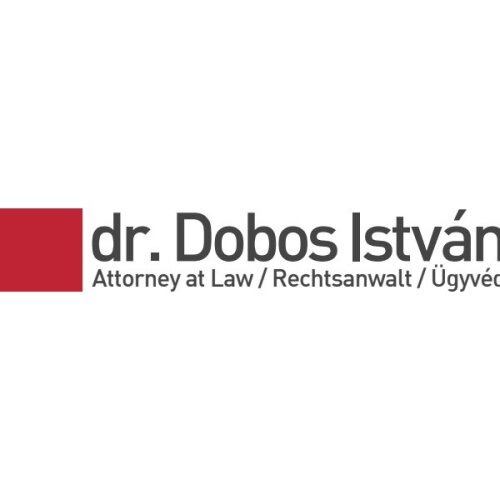Best Energy, Environment & ESG Lawyers in Hungary
Share your needs with us, get contacted by law firms.
Free. Takes 2 min.
Or refine your search by selecting a city:
List of the best lawyers in Hungary
About Energy, Environment & ESG Law in Hungary
Energy, Environment, and Environmental, Social, and Governance (ESG) laws in Hungary form a vital part of the legal framework that governs how businesses and individuals interact with natural resources, energy production, and sustainability standards. Hungary, as a member of the European Union, closely aligns its legislative approach with EU directives and regulations, while also incorporating specific national requirements. These laws are designed to promote sustainable development, responsible energy consumption, reduction of environmental harm, and adherence to ESG standards within various sectors of the economy. The field is dynamic, with ongoing updates reflecting the latest climate action goals, investment trends, and societal expectations.
Why You May Need a Lawyer
Legal assistance in the field of Energy, Environment, & ESG is crucial for a wide range of scenarios. Individuals, businesses, and organizations may encounter legal complexities related to regulatory compliance, permit applications, and the acquisition or development of energy facilities. Legal counsel is often necessary during environmental impact assessments, handling disputes over pollution or land use, and ensuring ongoing compliance with evolving ESG standards. Companies looking to attract investment or expand into new markets frequently seek expert advice on how to integrate ESG practices. Additionally, those facing enforcement actions by authorities, or seeking to participate in state incentives and tenders for renewable energy, often benefit from legal guidance.
Local Laws Overview
Hungarian legislation in the Energy, Environment, & ESG field is shaped by several key acts and regulations. The Energy Act and the Electricity Act govern the generation, distribution, and supply of energy, including renewable sources. Environmental protection is primarily regulated by the Environmental Protection Act, which sets standards for emissions, waste management, and environmental permits. Hungary’s ESG framework largely comes from EU-wide initiatives and local implementation of the EU Green Deal, Corporate Sustainability Reporting Directive (CSRD), and non-financial reporting obligations. Additionally, the National Energy Strategy and Hungarian Climate Change Act outline mid and long-term goals for transition to sustainable energy and carbon neutrality. All these laws are enforced by several governmental bodies responsible for oversight, licensing, and enforcement.
Frequently Asked Questions
What types of renewable energy projects are supported in Hungary?
Hungary supports solar, wind, hydro, biomass, and geothermal energy projects. The government often offers incentives and regulatory support for renewable investments, though some limitations apply, especially for wind projects due to strict zoning rules.
How is ESG compliance monitored in Hungary?
ESG compliance is monitored through a combination of regulatory reporting, audits, and inspections carried out by national authorities. Publicly listed companies and large entities must regularly disclose ESG-related data and performance as part of their corporate reporting.
What is an environmental permit, and do I need one?
An environmental permit is an official approval needed for activities that may impact the environment, such as industrial operations, waste management, or significant construction projects. Most energy-related activities require one, and the process involves detailed documentation and impact assessments.
Are there penalties for violating environmental or energy regulations?
Yes, violations can result in administrative fines, suspension of operations, mandatory remediation actions, and in serious cases, criminal charges against responsible individuals or companies.
Can a business access funding or incentives for green projects?
Yes, both the Hungarian government and the EU provide grants and incentives for businesses investing in sustainable energy or environmental protection projects, such as energy efficiency upgrades, solar installations, and waste reduction initiatives.
How do Hungarian laws align with EU energy and environmental regulations?
Hungary harmonizes its laws with EU directives and regulations, ensuring consistency in areas such as emissions reduction, renewable energy promotion, and climate change mitigation. Compliance with EU law is mandatory for individuals and organizations in Hungary.
What is the role of the Hungarian Energy and Public Utility Regulatory Authority?
This authority supervises energy markets, licenses providers, monitors compliance, and protects consumers. It plays a central role in implementing energy laws and resolving disputes in the energy sector.
How do environmental impact assessments work?
Environmental impact assessments (EIA) are comprehensive studies required for projects with potential environmental effects. The process involves public consultation, expert analysis, and the approval of competent authorities before the project can proceed.
What are the main environmental obligations for businesses operating in Hungary?
Businesses must comply with waste management, emissions control, reporting, and permit obligations. They may also need to prepare sustainability and environmental impact reports as required by law.
What should I do if I am accused of non-compliance?
If you are accused of non-compliance, you should seek legal advice immediately. It is important to understand the allegations, gather relevant documentation, and respond promptly and transparently to authorities to minimize potential penalties.
Additional Resources
Several resources are available to help individuals and companies navigate Energy, Environment, & ESG legal matters in Hungary. The Hungarian Energy and Public Utility Regulatory Authority provides information on licensing and compliance for energy providers. The Ministry for Energy, Ministry of the Environment, and the Ministry for Innovation and Technology all issue guidance and supervise the implementation of relevant laws. The National Environment Protection and Nature Conservation Inspectorate oversees environmental compliance. There are also several industry associations and chambers of commerce that publish guides and offer support on ESG topics.
Next Steps
If you require legal assistance in the field of Energy, Environment, and ESG in Hungary, the following steps can help you proceed:
- Identify your specific legal issue - whether it is permitting, compliance, investment, dispute resolution, or ESG reporting.
- Gather all relevant documents, including permits, reports, correspondence with authorities, and internal policies.
- Contact a qualified lawyer or legal firm specializing in Energy, Environment, and ESG. Choose someone familiar with Hungarian and EU regulations.
- Prepare to clearly communicate your objectives and any timelines involved in your issue or project.
- Follow your lawyer’s advice on next actions - this may include responding to authorities, applying for permits, conducting risk assessments, or initiating legal proceedings.
Taking these steps will help ensure that your interests are protected and that you comply with Hungary’s complex energy and environmental regulations.
Lawzana helps you find the best lawyers and law firms in Hungary through a curated and pre-screened list of qualified legal professionals. Our platform offers rankings and detailed profiles of attorneys and law firms, allowing you to compare based on practice areas, including Energy, Environment & ESG, experience, and client feedback.
Each profile includes a description of the firm's areas of practice, client reviews, team members and partners, year of establishment, spoken languages, office locations, contact information, social media presence, and any published articles or resources. Most firms on our platform speak English and are experienced in both local and international legal matters.
Get a quote from top-rated law firms in Hungary — quickly, securely, and without unnecessary hassle.
Disclaimer:
The information provided on this page is for general informational purposes only and does not constitute legal advice. While we strive to ensure the accuracy and relevance of the content, legal information may change over time, and interpretations of the law can vary. You should always consult with a qualified legal professional for advice specific to your situation.
We disclaim all liability for actions taken or not taken based on the content of this page. If you believe any information is incorrect or outdated, please contact us, and we will review and update it where appropriate.
Browse energy, environment & esg law firms by service in Hungary
Hungary Attorneys in related practice areas.
Browse energy, environment & esg law firms by city in Hungary
Refine your search by selecting a city.

















